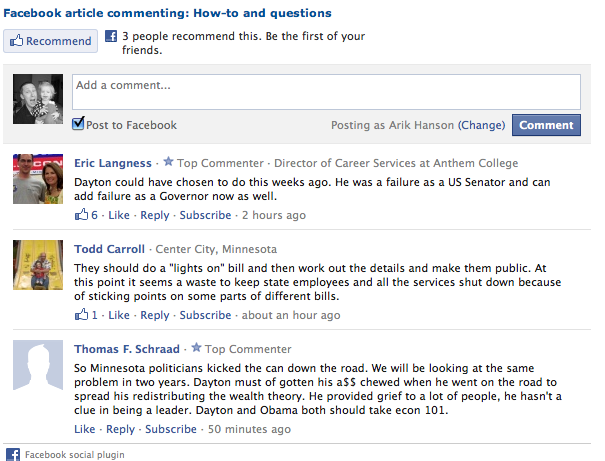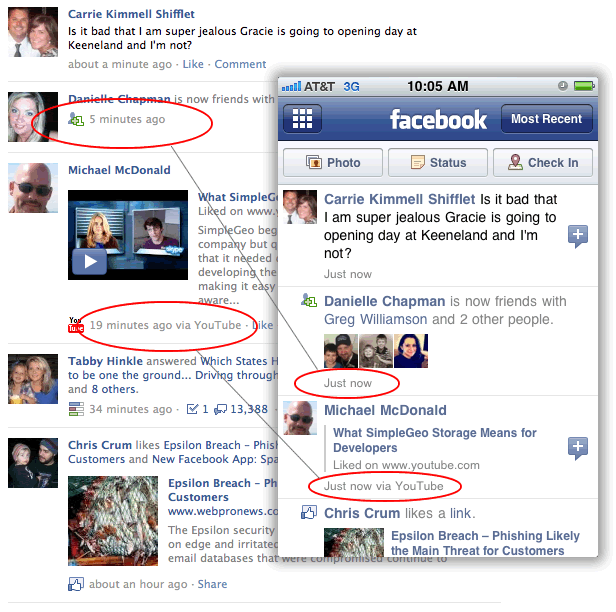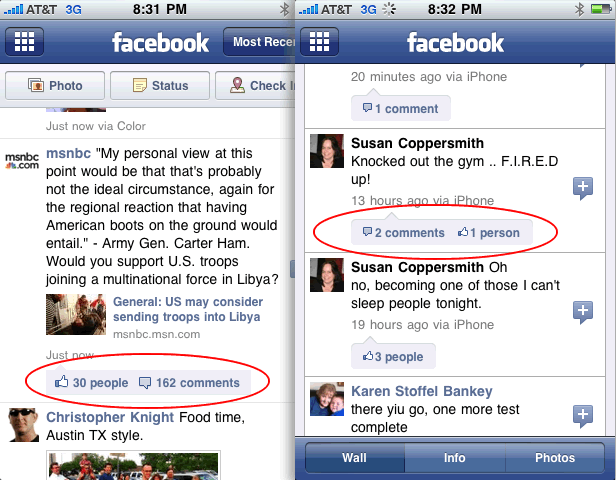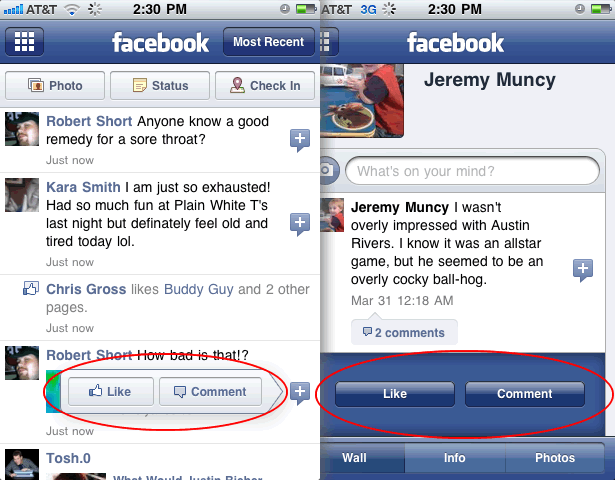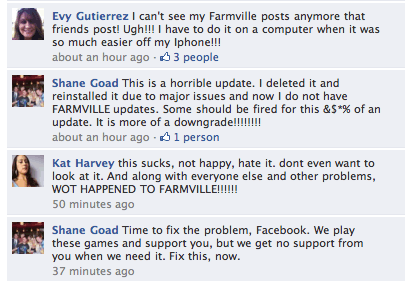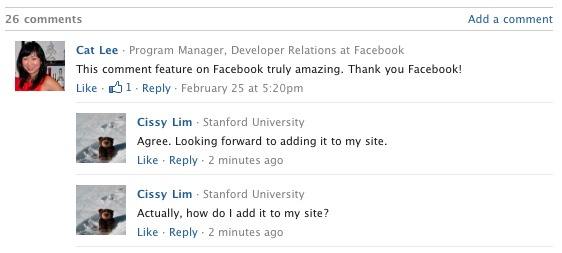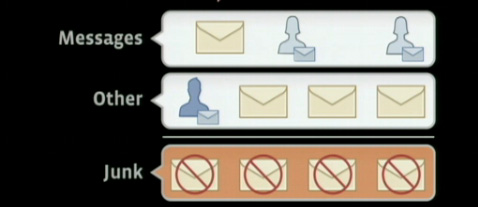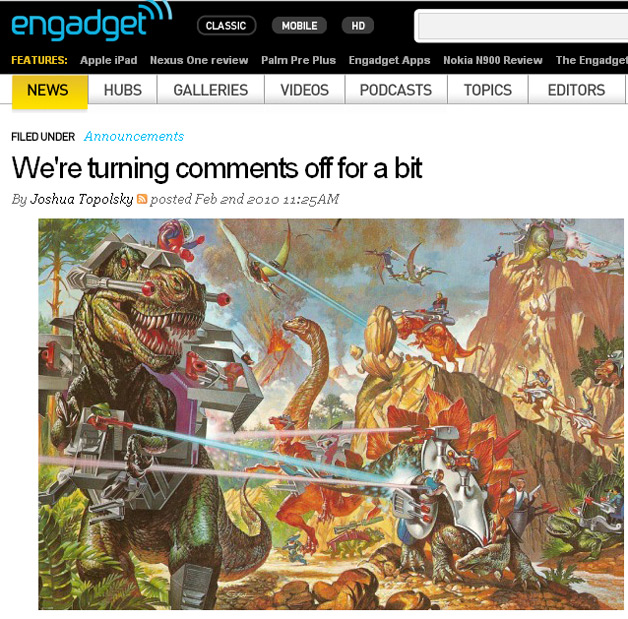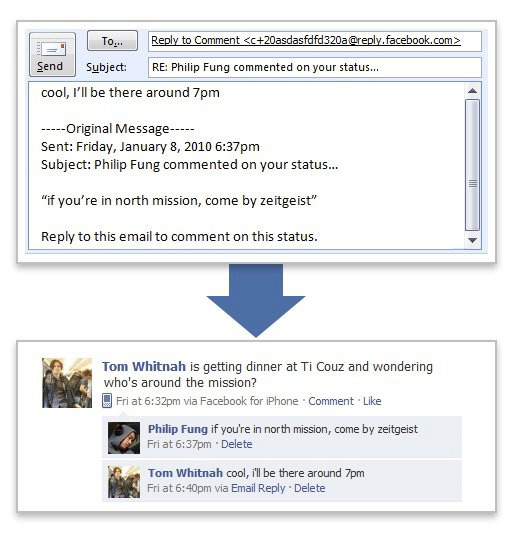Every so often, an argument and ensuing discussion erupts in the Blogosphere over whether or not it is ethical to block comments on a blog post and what value they actually add to content.
Would you rather have blog comments or Facebook "likes" and retweets? Let us know.
The latest one started when John Gruber at DaringFireball wrote a post in response to a John Battelle post about Apple blocking Google from iOS app Ads. Gruber has become somewhat famous around the tech Blogosphere for not allowing comments, and is ususally referenced in these conversations.
Joe Wilcox at OddlyTogether wanted to respond to Gruber’s post, but obviously couldn’t do that via a blog comment, so he wrote his own blog post instead, questioning Gruber’s manhood. "If John Gruber allowed comments on his blog, I wouldn’t need to write this post, and it has been long-time coming," wrote Wilcox. "I considered writing it every time I read something outrageous at Daring Fireball but couldn’t directly respond because John doesn’t allow comments. Finally, this morning, I had enough."
"A man pushes out only as much as he can receive back," he added later in the post. "By comparison, I see John attacking from a fortified position. He can attack but not easily be assaulted, and, yes, many of his posts are attacks on others. Sarcasm and witticism are the ammunition. Maybe John has different values of what is a man. My values are clear. A man—hell, a good writer—doesn’t hide behind his assertions. He stands by them. Discussion and response test his assertions and expose him to more points of view."
Benefits to Eliminating Comments?
One thing seems clear to me. If you turn off comments, it forces the conversation outward. As Gruber has proven, people who want to respond to one of his posts have no choice but to blog about it themselves, tweet about it, or choose some other venue to discuss it. Most likely, those who wish to discuss it are going to link to DaringFireball to give their own content context. It seems entirely possible that by not allowing comments, Gruber is encouraging more links to his content. This may not be his intent, but it would appear to be the case nevertheless.
That’s not to say that this strategy will work for everyone. Don’t expect to turn off comments and automatically get more traffic. Obviously, you’re going to have to create great content that people want to discuss in the first place. The question you have to ask yourself is whether you want the conversation to happen where it started or to be broken up all over the web.
That said, the conversation (if enough people find it worth having) is going to be broken up all over the web anyway. Regardless of whether or not you allow comments on your blog, people are going to respond to it in what ever manner they prefer. These days for many people, that means simply retweeting it or liking it on Facebook (now people can even "like" the comments on Facebook too).
Maybe the real question is this: how much do blog comments matter anyway? There is no containing the conversation. It’s really been this way as long as blogs have been popular. People have always responded to others’ posts with their own blog posts. The fact that services like Facebook and Twitter have become so popular in the mainstream is what has changed. It’s so much easier to add your comment in a quick status update or tweet than it is to write a new blog post.
Likewise, many will find it easier to simply hit a "like" button or a "recommend button" for Facebook or a retweet button to express their approval of a blog post. With a tweet, they can add their own commentary too, and it really provides more benefit to them, because they are bringing the people they know into the conversation, as opposed to just participating in a conversation with a bunch of strangers that also read that blog.
Naturally, this also benefits the blog post by opening it up to increased exposure, and obviously more traffic, as well as potentially more links, which can even benefit you in search.
Comments Still Have Value
Comments can add value to a blog post by presenting different perspectives around the subject at hand. Even Gruber has acknowledged this. But increasingly, more of those perspectives are being expressed externally. The entire conversation rarely (if ever) takes place on the blog post itself.


When readers see that a post has a lot of comments, they may be more inclined to read it. This is another valuable trait comments have, but if you display a count of retweets or Facebook Likes or Google Buzzes or Diggs, or whatever, it can achieve a similar effect. However, only the people that actually go to your site in the first place will see these counts. A more important factor to consider is probably that as more content is shared throughout networks like Twitter or Facebook, users will be more likely to read a post based on things like the title, who shared it with them, and what that person said about it.
Interestingly, Gruber was able to convince Wilcox to turn off his own blog comments. Would you ever consider taking that leap? For more background and viewpoints on the conversation (of which there are many), I suggest reading through the various posts at DaringFireball and OddlyTogether.
How important are comments to content? Tell us what you think.




